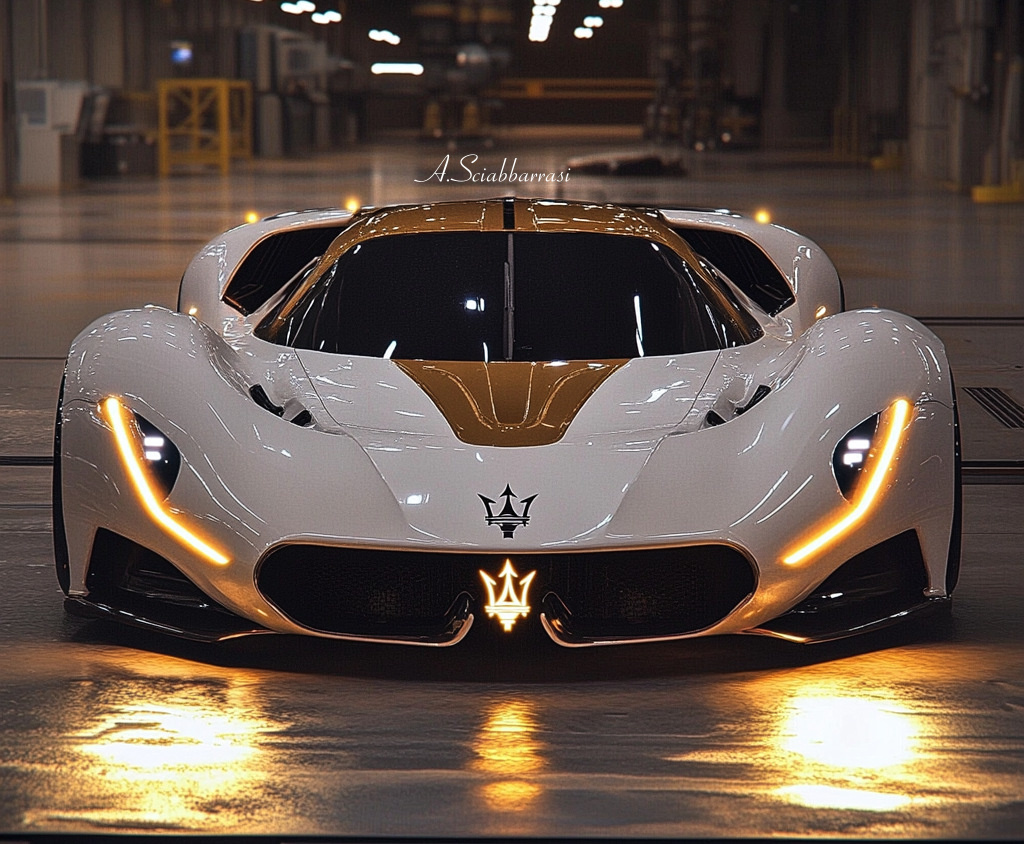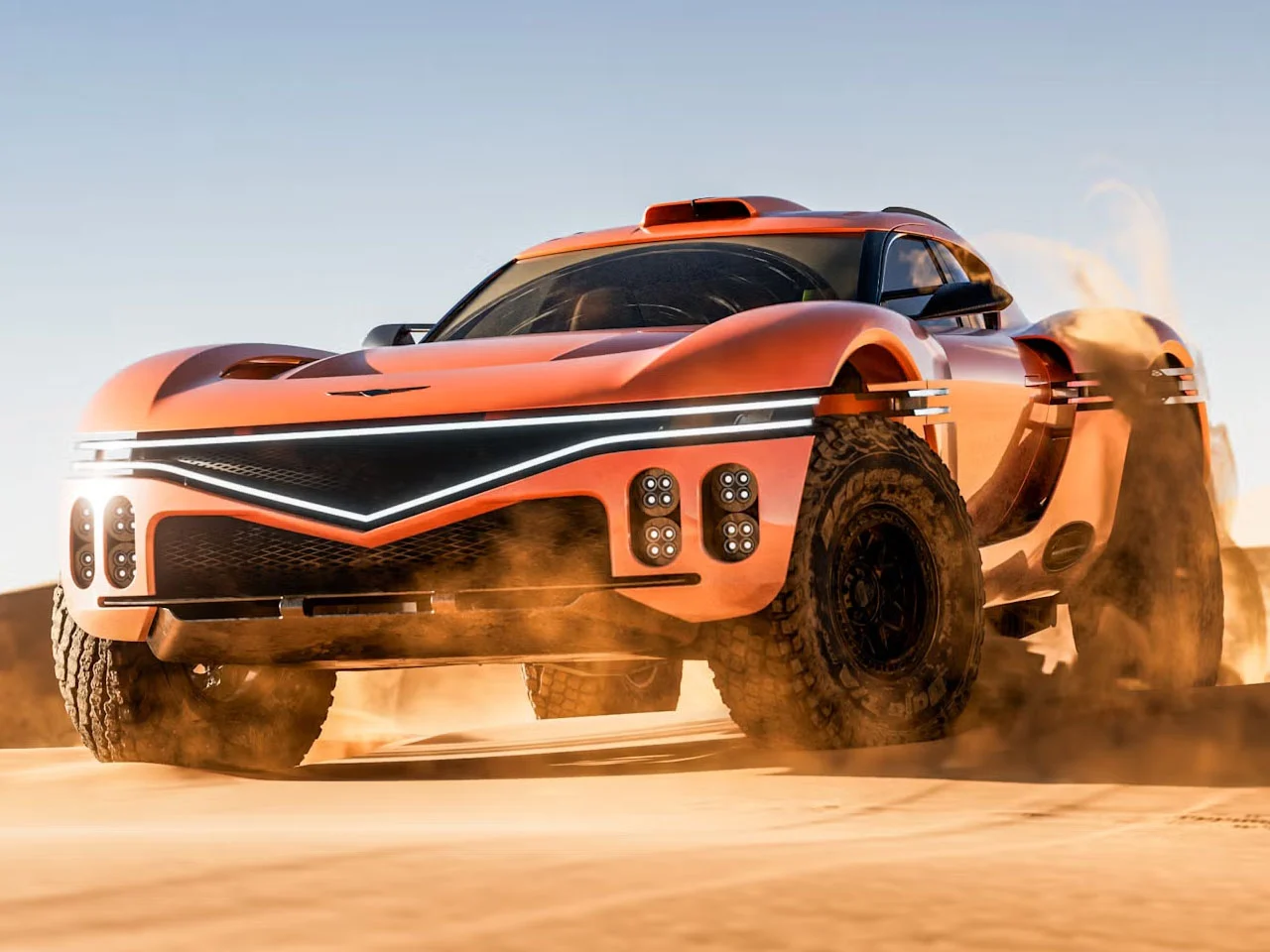Maserati, a name synonymous with luxury, performance, and Italian automotive excellence, has a history filled with remarkable supercars. However, the Maserati MC40 is not a well-documented model—because it never officially existed. Instead, the name appears to be either an enthusiast’s speculation or a potential placeholder for an unrealized project. Despite this, Maserati’s history and its approach to high-performance engineering allow us to construct a vision of what an MC40 could be, drawing from existing models like the MC12, the MC20, and Maserati’s past racing pedigree.
The Maserati MC Lineage
Maserati has a tradition of developing high-performance mid-engine supercars under the “MC” designation, which stands for Maserati Corse. This history provides the foundation for what an MC40 might represent.
MC12: A Racing Legend
The Maserati MC12, introduced in 2004, was essentially a road-going version of a GT1 race car. Developed in collaboration with Ferrari, it shared a chassis with the Ferrari Enzo but featured unique bodywork, improved aerodynamics, and a naturally aspirated 6.0L V12 engine producing 620 hp. The MC12 was Maserati’s return to high-level motorsport, particularly in the FIA GT Championship, where it achieved great success.
MC20: The Modern Supercar
Fast forward to 2020, and Maserati introduced the MC20, a mid-engine supercar designed to bring the brand back into the world of high-performance sports cars. Unlike the MC12, the MC20 was entirely Maserati’s creation, featuring an innovative 3.0L twin-turbo V6 Nettuno engine producing 621 hp. With a carbon-fiber monocoque and an emphasis on aerodynamics, the MC20 was a technological leap forward, blending performance with everyday usability.
Given this lineage, an MC40 would likely sit between these two cars in terms of design philosophy, either as an evolution of the MC20 or a new track-focused machine.
Possible Design of the Maserati MC40
If Maserati were to create an MC40, it would need to align with the brand’s aesthetic and engineering principles. Based on Maserati’s design trends, here’s what we can predict:
Exterior Styling
•Aerodynamic Efficiency: The MC40 would likely adopt aggressive aerodynamics similar to the MC12 but with modern refinements. Features such as an active rear wing, front splitters, and rear diffusers would ensure maximum downforce.
•Lightweight Materials: A carbon-fiber body with aluminum reinforcements would keep weight down while ensuring structural rigidity.
•Signature Maserati Design: Expect a low, wide stance with an evolved version of Maserati’s signature grille, sharp LED lighting, and large air intakes.
Interior Innovation
•Minimalist but Luxurious Cockpit: Maserati would likely use a driver-focused interior with Alcantara, carbon fiber, and premium leather.
•Advanced Infotainment: A large touchscreen interface with Maserati’s latest software, including track telemetry and customizable driving modes.
•Racing Seats and Harnesses: If the MC40 were a track-special variant, lightweight bucket seats with a five-point racing harness could be standard.
Powertrain and Performance
The Maserati MC40 would need a powertrain that bridges the gap between the MC20 and a more extreme performance vehicle.
Engine Possibilities
•High-Performance V6 Hybrid: One likely option would be a modified version of the Nettuno 3.0L twin-turbo V6, paired with an electric motor for additional power, bringing output to around 750 hp.
•Naturally Aspirated V8: Though less likely due to emissions regulations, Maserati could use a Ferrari-derived V8 to push power above 700 hp.
•All-Electric Version: Given the industry’s shift toward EVs, a high-performance electric MC40 with around 1,000 hp (similar to the Lotus Evija or Rimac Nevera) could be an ambitious but realistic approach.
Performance Expectations
If Maserati built the MC40 as a lightweight, track-focused supercar, we could expect:
•0-60 mph in under 2.8 seconds
•Top speed exceeding 220 mph
•Advanced aerodynamics for enhanced cornering speeds
•Sophisticated suspension and braking systems for track use
The car could also benefit from Maserati’s Formula E technology, incorporating regenerative braking and advanced torque vectoring for improved handling.
Positioning in Maserati’s Lineup
Where would the MC40 fit in Maserati’s supercar lineup?
A Bridge Between the MC20 and a Hypercar
•If the MC40 were a higher-performance, track-oriented version of the MC20, it would compete with cars like the McLaren 765LT, Ferrari 296 GTB, and Porsche 911 GT2 RS.
•If it were a limited-production hypercar, it could challenge the Ferrari SF90, Lamborghini Revuelto, and even Bugatti models.
Limited Production and Exclusivity
Maserati has a history of producing special editions and limited-run vehicles, so the MC40 would likely be built in low numbers—perhaps 300 to 500 units worldwide—to maintain exclusivity.
Racing Potential and Legacy
Maserati has deep motorsport roots, and an MC40 could be an opportunity to return to racing.
GT3 or Le Mans Hypercar Entry?
•A GT3-spec MC40 could compete in endurance racing alongside Ferrari, Porsche, and Aston Martin.
•If built to Le Mans Hypercar (LMH) or LMDh regulations, Maserati could return to the top tier of endurance racing, reviving its motorsport prestige.
A successful racing program could increase Maserati’s brand recognition and boost road car sales, much like Ferrari’s success in Formula 1 benefits its production models.
Challenges and Feasibility
Despite the appeal of an MC40, there are several challenges Maserati would face:
•Development Costs: A new supercar requires extensive R&D, which might not be viable without Ferrari’s support (as was the case with the MC12).
•Market Demand: With SUVs and EVs dominating the market, a track-focused supercar might have limited appeal.
•Regulatory Constraints: Stricter emissions and noise regulations could hinder the use of high-performance combustion engines.
However, if Maserati sees an opportunity for an exclusive, high-performance model, the MC40 could become a reality.
While the Maserati MC40 is not an officially confirmed model, the concept of such a car fits well within Maserati’s history and ambitions. It could serve as:
•A track-focused evolution of the MC20
•A limited-production hypercar
•A racing prototype for Le Mans or GT3 competitions
With Maserati’s commitment to performance and innovation, the idea of an MC40 is not far-fetched. If Maserati were to develop such a car, it could stand as a testament to the brand’s racing heritage while ushering in a new era of high-performance Italian engineering.
For now, the MC40 remains a concept in the realm of speculation—but in the world of Maserati, where passion and performance drive innovation, anything is possible.
No comments yet.








